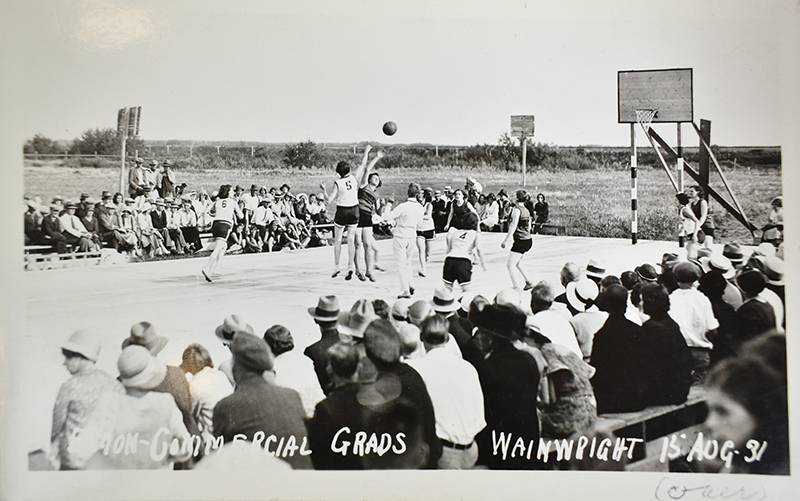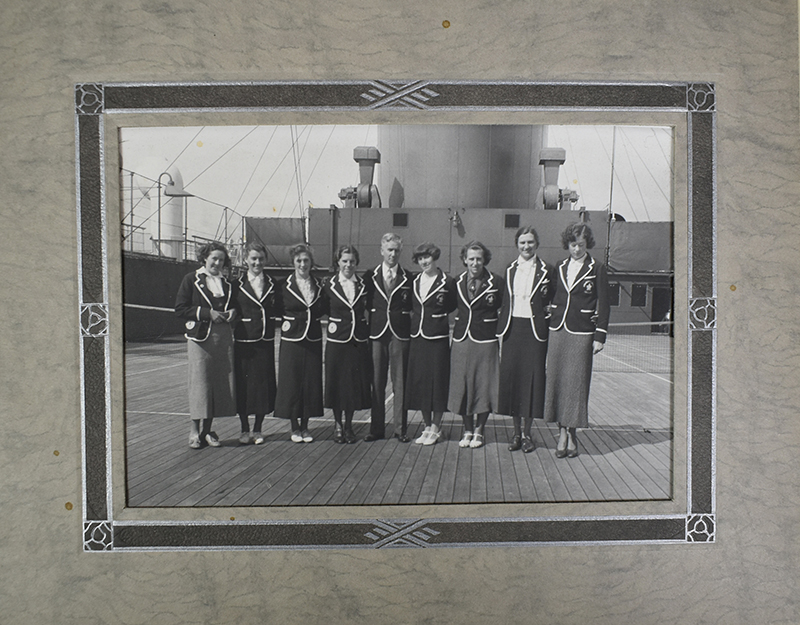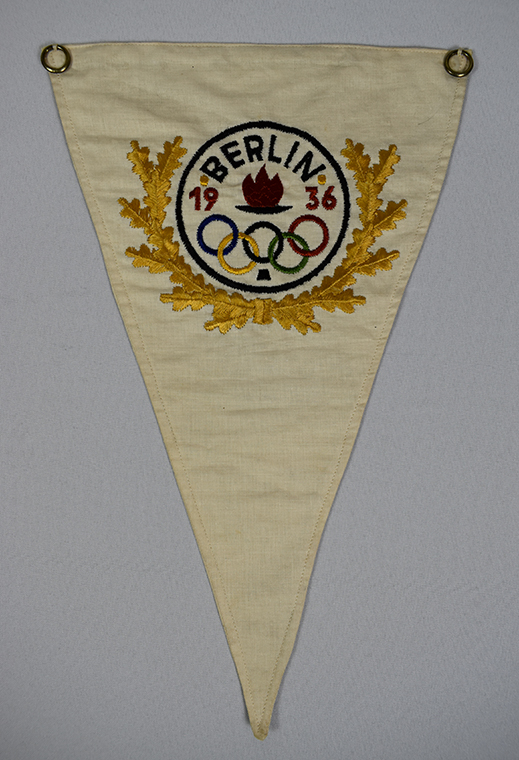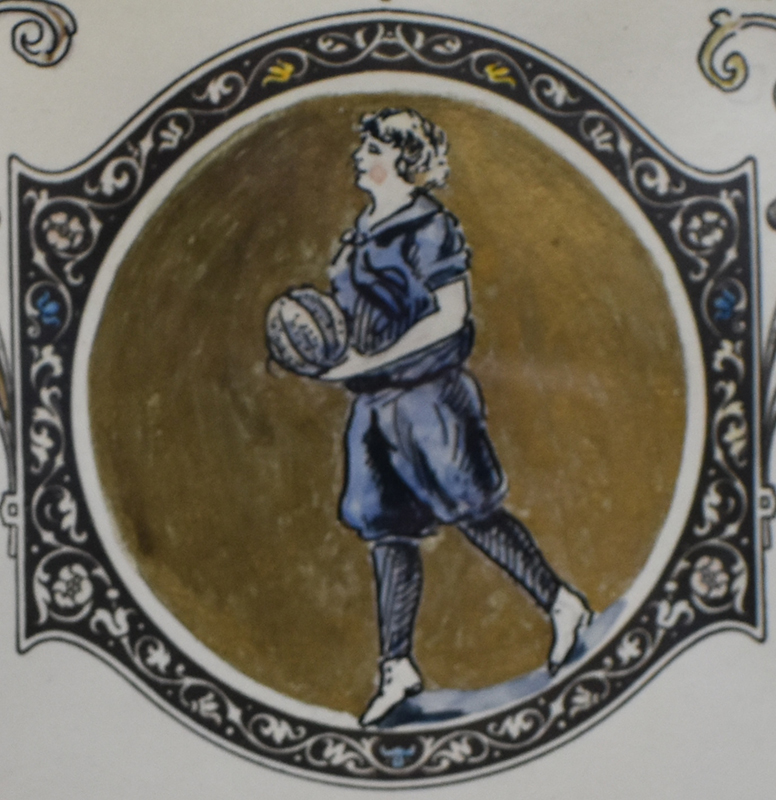
Coach Percy Page running a practice, 1939 [1980-16-28]
Please choose between the following three options:
Skip to main menu Skip to site search Continue to current page menu and contentStreet sweeping parking bans run Monday to Friday from 7am to 5pm in scheduled areas. Find your neighbourhood schedule and sign up for notifications.
Main page content begins here

Coach Percy Page running a practice, 1939 [1980-16-28]
In the 25 years of the team, only 38 women wore the Grads uniform and Percy Page was their only coach. The Grads, as amateur athletes, were never paid to play basketball. They balanced full-time jobs with a demanding practice and tournament schedule throughout the basketball season. Coach Page was equally dedicated, serving as the coach and business manager for the team, in addition to working full-time as a teacher and later principal at McDougall Commercial High School.
“We’ve had a remarkably fine lot of girls … they’re well equipped physically and are willing to sacrifice a few good times to keep up to a high standard of training.”
(Percy Page, Maclean’s Magazine, January 15, 1929, Vol. 42, Issue 2, p. 8)

Postcard of Grads playing Gradettes in an exhibition game in Wainwright, 1931 [1980-16-65]
In order to be a Grad, a player had to be in, and maintain, her top physical condition. The team had 8 players—5 regulars and 3 substitutes. Coach Page expected the 5 regular players to play the entire game and did not often play the substitutes. The Grads practiced regularly against the “boy Grads” (the men’s team associated with McDougall School), which contributed to their physical conditioning. Critics, sports writers and opponents consistently noted that the Grads were a superior basketball team.

Edmonton Grads, wearing the Team Canada Olympic blazer, on an ocean liner to attend the Olympic games in Berlin, 1936 [1980-16-16]
The Grads, “are not only an inspiration to basketball players throughout the world, but a model for all girls’ teams.” Dr. James Naismith, inventor of the game (“Sitting on Top of the World” 1915-140, pg. 6).

Banner from the games [1980-16-166]
By playing and winning tournaments throughout Canada, the United States and Europe, the Grads introduced and represented Edmonton to the world. Consistently, the Grads were noted for their winning record, their exceptional sportspersonship and record of clean play. Regular global newspaper coverage gave play-by-play on the games and highlighted players. Edmontonians shared in the pride and celebrity of the Grads.
The Grads not only promoted basketball but gave back to the communities that supported them. They shared their love for the game by hosting exhibition games playing against their farm team, the Gradettes, in small towns all across Alberta. They also went to countless luncheons and promotional events to support the team and basketball.

Detail of handwritten certificate of congratulations to Grads from Alberta branch of Amateur Athletic Union of Canada [1980-16-6]
Though there was fan support when the Grads first started playing in the 1920s, there was also public scrutiny with women playing competitive sports. Many felt that physical exertion, stress and intensity would affect women’s reproductive systems, and that competition damaged “femininity.” In order to ensure that the standards of his players would never come under debate, Page instructed his players to not smoke, drink, swear, or chew gum; to dress smartly; and to behave politely and discreetly. Paternalistic? Yes, but it was a way of keeping the focus on the game and the athleticism of the players.
This pushing of traditional gender boundaries and ideas of what women should and shouldn’t do was why the 1920s has been dubbed the Golden Age of women in sport. Gender barriers in organized sports, such as track and field, ice hockey, softball and basketball, were being broken. The record setting accomplishments of the Grads and their behaviour on and off the court were instrumental in challenging public perception of what “proper” women could do and achieve. Did the Grads see themselves pushing the boundaries of women in sport? Unfortunately we don’t know because very little was recorded about this perspective.